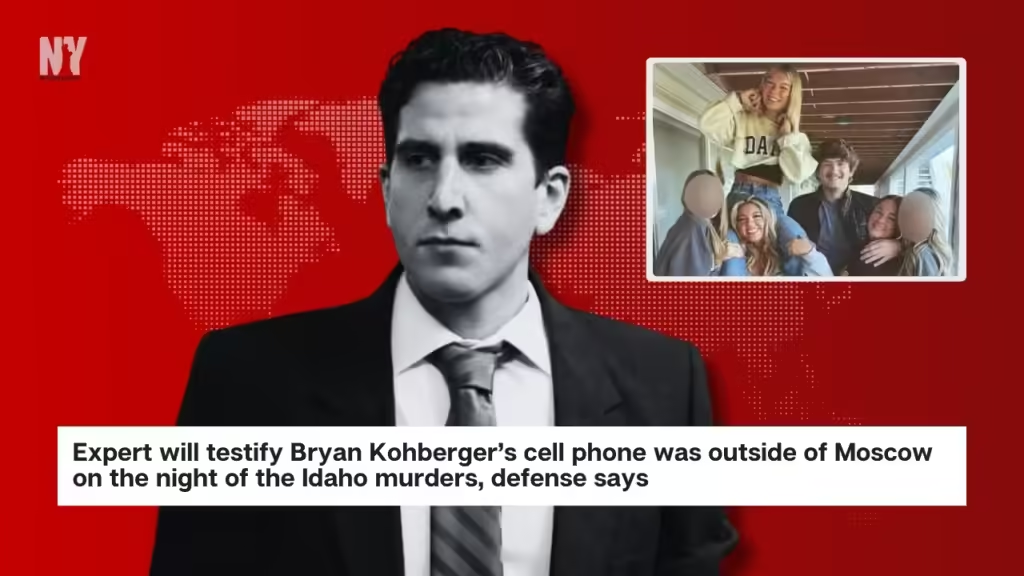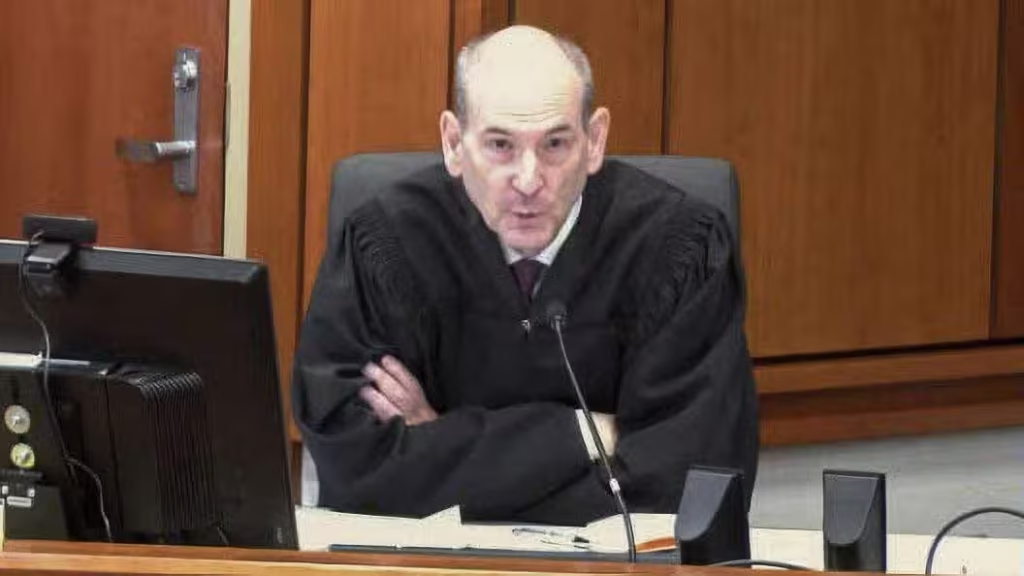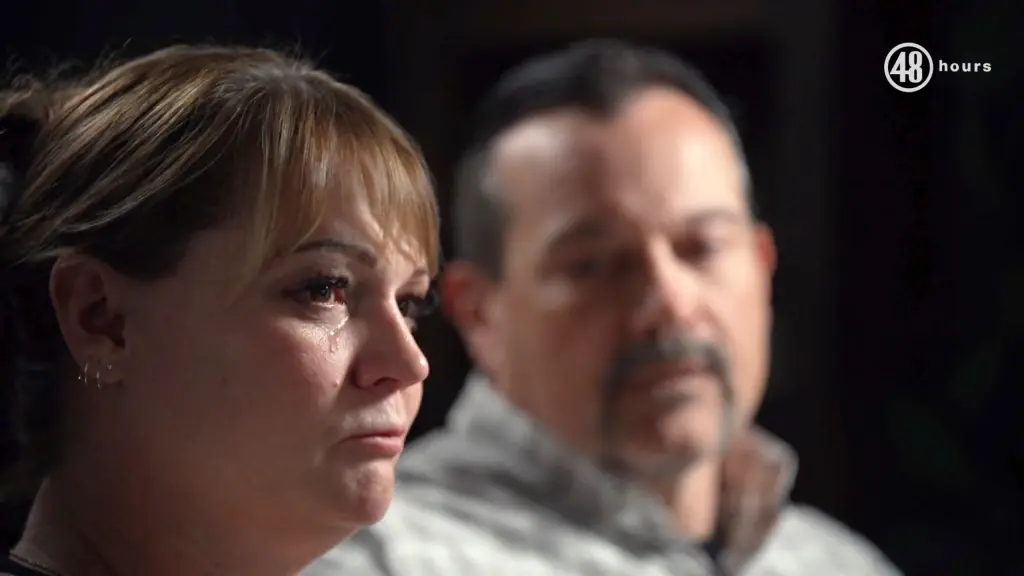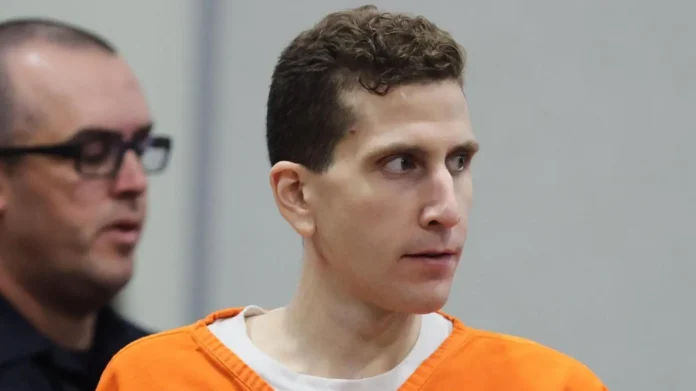Judge weighs restitution for families in Moscow murders: No capacity to pay: Kohberger’s Idaho defence fends off more victim reparations.
Table of Contents
Bryan Kohberger Restitution Hearing: Key Details
Bryan Kohberger, the man spending life in prison for murdering four University of Idaho students, received at least $10,000 in contributions while in imprisonment awaiting his murder trial, and he intends to avoid paying any future cash to the victims’ families.
On Wednesday morning, attorneys for Kohberger and the state appeared digitally before 4th Judicial District Judge Steven Hippler to debate how much restitution he should be ordered to pay.
The 20-minute hearing was the first in the highly anticipated case since Hippler sentenced Kohberger to four consecutive life sentences plus $300,000 more than three months ago.
Kohberger, who turns 31 this month, is held in the state’s maximum-security prison south of Boise. He did not attend Wednesday’s hearing; instead, his three-member defense team did.

Bryan Kohberger’s Plea Deal and Restitution Dispute
In exchange for pleading guilty and avoiding the death sentence, Kohberger agreed to pay approximately $29,000 to two of the victims’ families and Idaho’s crime victim’s fund.
However, his defense contended that he should not be held responsible for extra reparations for the other two victims’ families.
The bulk of the state’s request for an additional $27,000 on their behalf does not qualify under Idaho law, Kohberger’s defense told Hippler Wednesday.
The additional expenditures are also beyond the scope of the plea bargain and occurred more than 60 days after their client’s punishment.
Kohberger’s counsel contended that as a prisoner, he also lacked the capacity to pay.
The Murders and Case Background

Kaylee Goncalves and Madison Mogen, both 21, were killed, as were Xana Kernodle and Ethan Chapin, both 20.
In November 2022, all four were fatally murdered in an off-campus residence in Moscow. The three-year anniversary of their killings is next week.
The court earlier determined that Kohberger was poor, which means he could not afford to hire a counsel, so he was assigned a public defense team for his case.
His preliminary proceedings lasted more than two and a half years before concluding with the plea deal.
Idaho Murders: Defense Argument: Inability to Pay
Kohberger did receive “lump sums” to his account while in arrest on murder charges, but his current conditions in prison are “drastically different” from before the plea deal, according to defense counsel Elisa Massoth. She further said that these gifts were “primarily family” in order to maintain contact prior to his trial.
“We argue that he does not have the ability to pay,” Massoth told the court. “There’s no way that Mr. Kohberger is ever going to profit from any sort of movie or book because Idaho code … specifically precludes that.”
Idaho Murders: Judge Hippler’s Concerns
Hippler objected to other methods Kohberger may receive contributions in jail in the future, such as from family members and the general public.
According to records, Kohberger got payments totaling “five figures” while in prison, he said. The specific amount and source of the gifts were kept under wraps.
“It seems to me one of the best indicators of the future is the past,” according to Hippler. “Going forward, I’m not aware of his family having disowned him at this point and not wanting any contact with him.”
The high-profile case’s unusual character, which drew global notice, may also provide prospects for profit for individuals involved, according to Hippler.
“What damage is there to order the restitution, which would then kind of jump in line in terms of priority of payments over some of the other mandated payments?” he inquired. “What’s the downside to ensuring that the victims are as whole as possible?”
Massoth branded Kohberger’s prospective contributions as “pure speculation.”
Prosecutor’s Adjustment ( Idaho Murders Victim Bryan Kohberger )

At the hearing, Latah County Prosecutor Bill Thompson, who headed the state’s case against Kohberger, admitted that some of the extra compensation asked did not fulfill Idaho law’s criteria.
Thompson altered his stance on Wednesday, asking for an additional $3,100 since reimbursements for the families’ hotel and transport expenditures in Boise do not qualify.
“I now know that’s not correct, and it was certainly my mistake,” he told the court.
The families of Goncalves and Mogen spent $3,100 on urns.
The defense and prosecution agreed that such amounts qualify within the scope of funeral expenses as outlined in the plea agreement.
Judge Questions Defense
Idaho 4th Judicial District Judge Steven Hipper convened a virtual hearing Wednesday to determine how much restitution prisoner Bryan Kohberger should be compelled to pay to the four victims’ families after the Moscow killings in November 2022.
Hippler did not make a choice. The Idaho 4th Judicial District Court said, “Why should you not be held to the plea agreement to pay the victims’ costs of interning their children?” Hippler questioned the defense.
The hearing was also attended by Anne Taylor and Bicka Barlow, both defense lawyers.
Massoth agreed that the fees would qualify, but then emphasized that her client is unable to pay, including the previous $29,000 in reparations. She noted that the new request did not meet the statutory deadline.
Idaho Murders Families’ Frustration

The Goncalves family has expressed dissatisfaction with Kohberger’s unwillingness to provide more reparations.
“Is it really about money?” Kristi Goncalves, Kaylee’s mother, recently spoke to The Interview Room podcast.
“Everybody knows he’s never going to pay a dollar, so why should they care if it’s the most enormous figure in the world? … But it’s simply that control, denying us reparation, and wanting to debate and fight about it.”
Idaho Murders Next Steps
Hippler did not decide on the issue from the bench Wednesday. He stated he will make a judgment in “due course.”
